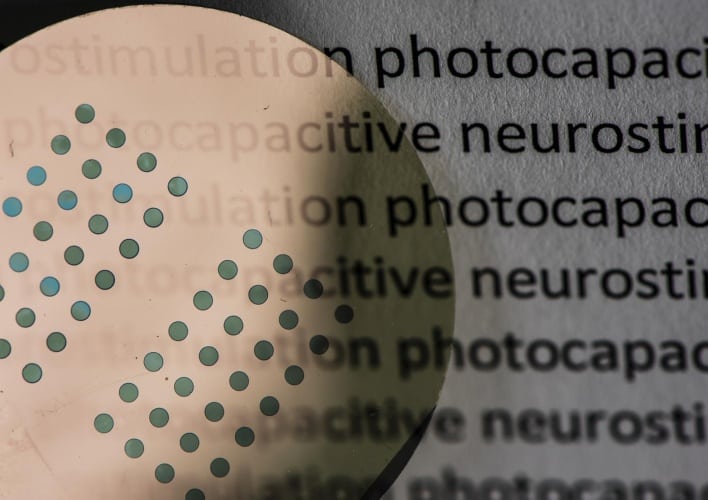Tiny retinal implant shows potential for restoring vision
An international team of researchers has developed a microscopic retinal implant that converts light into electrical signals and could restore sight for some blind people.

The thickness of both the organic islands and the underlying gold is more than one-hundred times thinner than a single neuron (Credit: Thor Balkhed)
Fabricated using widely-available organic pigments found in printing inks and cosmetics, the implant contains tiny pixels similar to a digital camera, but on a nanometric scale. Each pixel is about 100 times thinner than a single cell and has a diameter smaller than a human hair.
The photoactive material - a pigment of semi-conducting nanocrystals on a sheet of ultrathin gold – simulates the action of the retina by turning light into electrical signals. In humans, these signals are then transferred along the optic nerve to the brain’s visual cortex. It’s believed that the implant could restore sight for blind people whose retina cells are no longer sensitive to light. A collaboration between scientists working in Sweden, Israel, Italy and Austria, the study is published in Advanced Materials.
Register now to continue reading
Thanks for visiting The Engineer. You’ve now reached your monthly limit of news stories. Register for free to unlock unlimited access to all of our news coverage, as well as premium content including opinion, in-depth features and special reports.
Benefits of registering
-
In-depth insights and coverage of key emerging trends
-
Unrestricted access to special reports throughout the year
-
Daily technology news delivered straight to your inbox










Water Sector Talent Exodus Could Cripple The Sector
Maybe if things are essential for the running of a country and we want to pay a fair price we should be running these utilities on a not for profit...